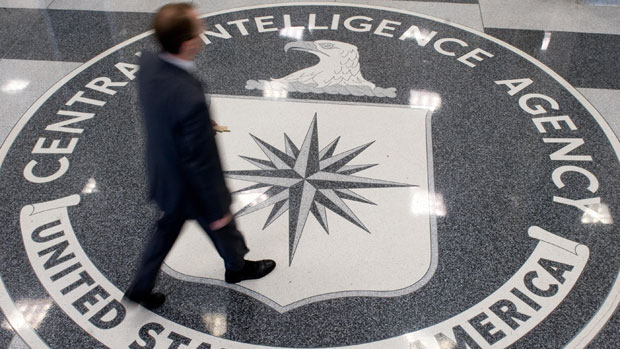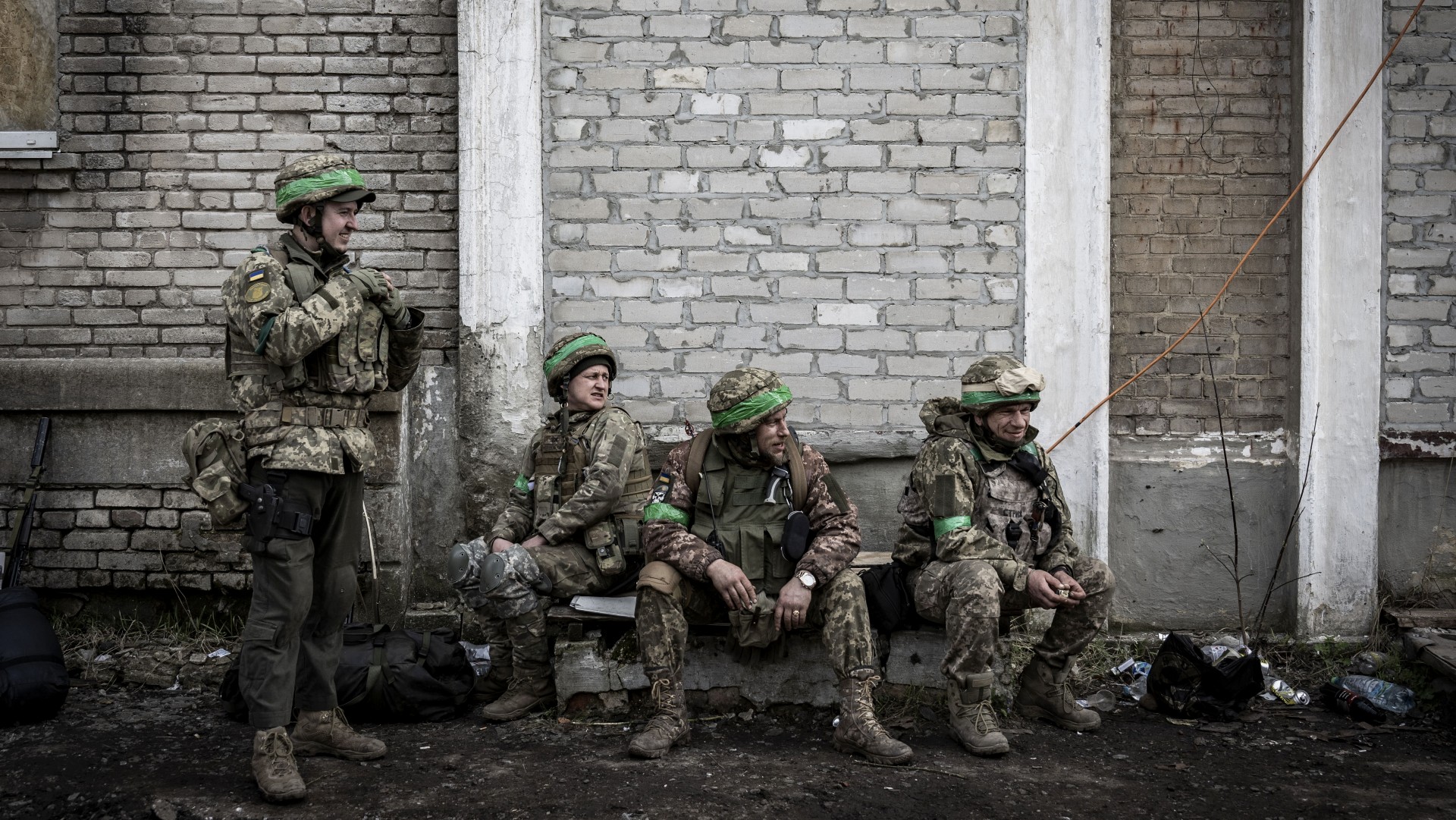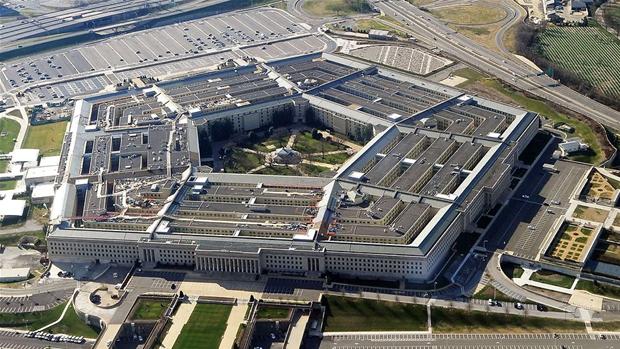Terrorism watchlist: secret US rules revealed
Agencies don't need 'concrete facts' to label individuals terrorists – so how are people watchlisted?

A free daily email with the biggest news stories of the day – and the best features from TheWeek.com
You are now subscribed
Your newsletter sign-up was successful
A secret US government rulebook, revealing details of how its internal terrorist watchlist is compiled, has been published in full by The Intercept, the investigative website set up by eBay founder Pierre Omidyar.
The 116 page document was written by the National Counterterrorism Center in March 2013 and includes input from the Pentagon, CIA, NSA, FBI and other national agencies. It authorises "a secret process that requires neither 'concrete facts' nor 'irrefutable evidence' to designate an American or foreigner as a terrorist", says the website.
What is the Terrorism Watchlist and how many people are on it?
The Week
Escape your echo chamber. Get the facts behind the news, plus analysis from multiple perspectives.

Sign up for The Week's Free Newsletters
From our morning news briefing to a weekly Good News Newsletter, get the best of The Week delivered directly to your inbox.
From our morning news briefing to a weekly Good News Newsletter, get the best of The Week delivered directly to your inbox.
The FBI describes the Terrorism Watchlist as one of its "most effective counterterrorism tools".
The list is shared with local US law enforcement, international governments and "private entities", helping them to identify confirmed and potential terrorists trying to secure travel documents, board planes or in engage in other potentially dangerous activities.
Over 1.5 million names have been added to the list in the last five years, according to the Associated Press.
What did the document reveal?
A free daily email with the biggest news stories of the day – and the best features from TheWeek.com
The document includes a "wide definition of what constitutes terrorism and a low threshold for designating someone a terrorist", says The Intercept.
Individuals are never told why they have been placed on the watchlist and the rules make it "nearly impossible to get off it".
So who can be placed on the list?
- US and foreign nationals who have previously engaged in terrorism.
- Anyone government agencies "reasonably suspect" to be a terrorist. The suspicion needs to be based on gathered intelligence, "mere hunches and guesses are not sufficient" to watchlist someone, the report states.
- Entire "categories" of people can be placed on the list if a terror threat is imminent.
- Someone who has already been acquitted of a terrorism crime by the courts can still be watchlisted.
- People who have died often remain on the watchlist in case their identities are stolen by other potential terrorists.
- The document contains "loopholes" whereby a suspected terrorist's family, friends and acquaintances can also be placed on the list.
What has the response been?
The rules are "an abuse of privilege" says The Freedom of the Press Foundation.
"Instead of a watchlist limited to actual, known terrorists, the government has built a vast system based on the unproven and flawed premise that it can predict if a person will commit a terrorist act in the future," says Hina Shamsi, the head of the American Civil Liberties Union's National Security Project.
"On that dangerous theory, the government is secretly blacklisting people as suspected terrorists and giving them the impossible task of proving themselves innocent of a threat they haven't carried out."
The government is yet to comment on the release of the documents.
What are the consequences?
A watchlist with over a million names on it has wider implications, not just for civil liberties, but for national security, law professor Anya Bernstein told MintPress news.
"Having irrelevant people on these lists is not something harmless, like receiving a couple of pieces of junk mail that you can throw out", she said. "It actually places us in danger, because the avalanche of irrelevance distracts agents from actual dangers. It's not a couple of pieces of junk mail, it's hundreds of thousands of spam emails cluttering up your inbox, making it hard to spot the important stuff."
-
 Why is the Trump administration talking about ‘Western civilization’?
Why is the Trump administration talking about ‘Western civilization’?Talking Points Rubio says Europe, US bonded by religion and ancestry
-
 Quentin Deranque: a student’s death energizes the French far right
Quentin Deranque: a student’s death energizes the French far rightIN THE SPOTLIGHT Reactions to the violent killing of an ultraconservative activist offer a glimpse at the culture wars roiling France ahead of next year’s elections
-
 Secured vs. unsecured loans: how do they differ and which is better?
Secured vs. unsecured loans: how do they differ and which is better?the explainer They are distinguished by the level of risk and the inclusion of collateral
-
 US intelligence leaks: the threat to Ukraine
US intelligence leaks: the threat to Ukrainefeature Concerns raised over the effect that the leaks might have on Ukraine’s war effort
-
 Bulldog saves owner’s leg by eating his toe
Bulldog saves owner’s leg by eating his toefeature And other stories from the stranger side of life
-
 Jack Teixeira: how 21-year-old airman became alleged Pentagon leaker
Jack Teixeira: how 21-year-old airman became alleged Pentagon leakerUnder the Radar Suspect’s arrest might have ‘exposed’ a larger US national security problem
-
 China urges calm as US tracks suspected Chinese surveillance balloon
China urges calm as US tracks suspected Chinese surveillance balloonSpeed Read High-altitude spy balloon seen over US nuclear missile facility in Montana
-
 Five Eyes: the spy scandal spooking Western powers
Five Eyes: the spy scandal spooking Western powersIn Depth Top Canadian intelligence official accused of stealing classified data
-
 Did Brett Kavanaugh lie under oath?
Did Brett Kavanaugh lie under oath?Speed Read Acquaintances of the Supreme Court nominee say his claims to Senate committee didn’t add up
-
 Vintage US security posters range from bizarre to terrifying
Vintage US security posters range from bizarre to terrifyingSpeed Read NSA notices warned staff about the dangers of everything from drugs to car-pooling
-
 Who assassinated Robert F. Kennedy? Five conspiracy theories
Who assassinated Robert F. Kennedy? Five conspiracy theoriesIn Depth Former senator’s son is leading calls for a new investigation into the 1968 assassination